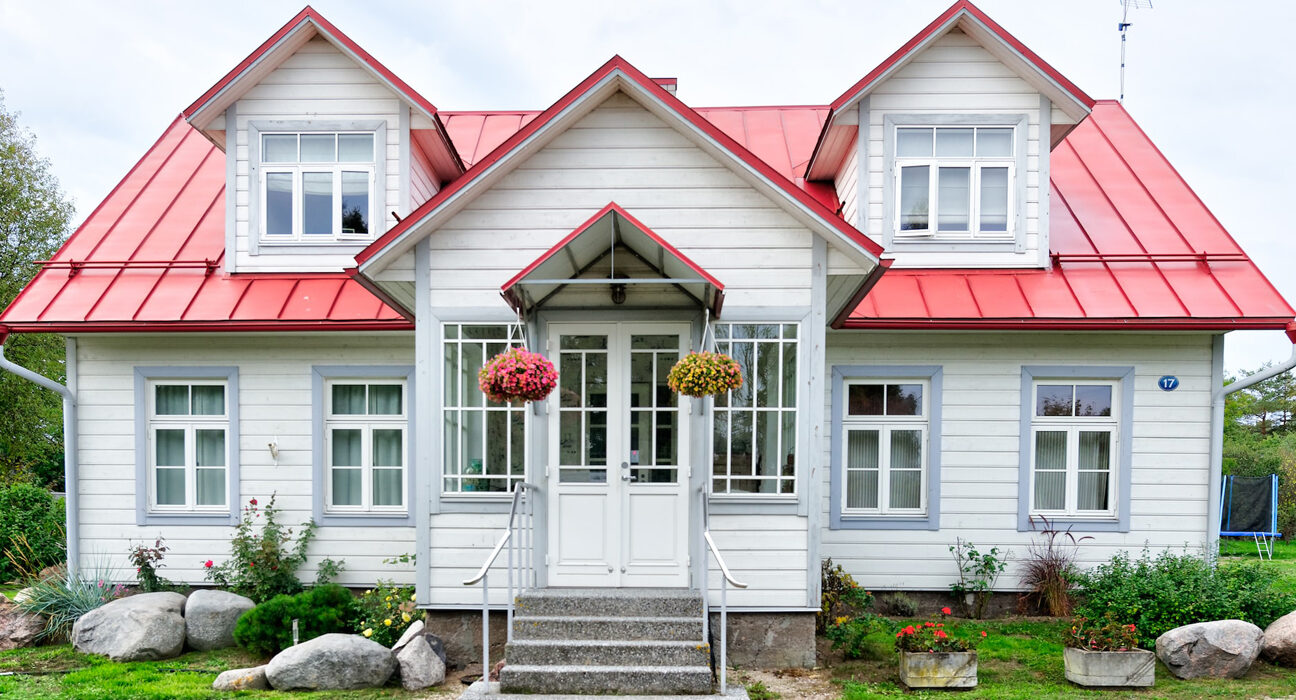The concept of renting out their homes is one that many individuals consider. They might want the added income to save money or pay off debt, or they might see it as a viable alternative to selling during a downturn in the property market and a means to hold off until the economy picks up.
There are various reasons for this, but if the right factors aren’t taken into account, it can end up being more hassle than it’s worth. You may get off on the right foot by following these five steps.
Your home could be rented out temporarily or seasonally if you are fortunate enough to reside in a tourist-friendly area, such as close to a beach or a big city. Find out the laws governing these kinds of rentals in your town or city before joining a short-term rental network like Airbnb.

- Landlords have a wide range of duties that frequently include unanticipated fees. If at all feasible, having some cash on hand is beneficial.
- Running a thorough background check on a possible tenant is advised. Make careful you obtain several references from prospective tenants.
- If you own a home nearby to a lake, a beach, or another seasonal attraction, it can be worthwhile to look into short-term rental websites.
5 Tips for Renting Out Your Home
1. Understand the Responsibility Involved
2. Prepare Your Home for Renters
3. Marketing Your Home
4. Hire Professionals to Help You Navigate the Financials
5. Screen Tenants Carefully
1. Understand the Responsibility Involved
You must first decide if becoming a landlord is a responsibility you can even undertake. Renting has many advantages, including the ability to prevent vandalism, which frequently targets vacant homes, the simplicity of tax incentives, and the capacity to generate money that can pay the bills and possibly even turn a profit.
But managing a rental property adds another obligation to your plate, and it’s reasonable to expect that things won’t always go as planned. You’ll have to pay more for your homeowner’s insurance, keep up with repairs and maintenance, collect rent, and try to prevent wear and tear on your property by keeping an eye on your tenant’s housekeeping abilities.
The Internal Revenue Service (IRS) normally requires landlords to declare rental revenue on their tax returns, which is crucial to keep in mind. However, the IRS has a minimal rental use rule that specifies that rental revenue is not need to be reported if a dwelling unit is used as a residence, in this case, your home, and was rented for fewer than 15 days. The landlord does not receive the tax advantages of deducting expenses, such as utilities, which would typically lower taxable income, nevertheless, if the rental period is shorter than 15 days.
2. Prepare Your Home for Renters
You probably won’t be able to rent out the house as-is in a weak market. Because there are more rental homes available at certain times, tenants are more picky and attentive, and they have considerably higher expectations.
Cleaning your home carefully and checking that all of the appliances are in good working order will help you get ready for the new renter. Make sure you can isolate that space from the rest of your home if you’ve opted to rent out a room or other portion of your home.
3. Marketing Your Home
Create a list of the qualities that make the house desirable once it has been cleaned up so you may place it on the market. Keep an eye out for amenities like a garage, washer and dryer, and air conditioning that are frequently desired. To assist in “selling” the property, use rental words.
According to RentalsOnline.com, phrases like “granite,” “state-of-the-art,” “stainless steel appliances,” “vaulted ceilings,” “maple,” “gourmet,” and “hardwood floors” can help you attract renters. Use each and every term that pertains to your house.
Post an advertisement for the house next on reliable websites and in your neighbourhood papers. Even while they will receive a commission if they locate you a tenant, some real estate brokers will work with homeowners to help them rent out their houses.
Additionally, you can engage a property management company to take care of the administrative aspects of renting out your home. Depending on the business, the price is typically between 8% and 10% of the monthly rent, plus any additional costs that may apply.
4. Hire Professionals to Help You Navigate the Financials
Although converting your home into a residential rental property may seem straightforward, you should consult with real estate lawyers and accountants to ensure that you are adhering to all applicable tax laws, zoning regulations, and municipal real estate laws.
Tax deductions can be available to you, but it’s crucial to understand exactly which expenses are eligible. Additionally, the amount you are authorised to deduct may not match the rental activity listed on your tax return, and there are limits on how much you can deduct each year.
Additionally, a lawyer can assist you in navigating the state-specific landlord-tenant laws and the rental property restrictions in your neighbourhood. You can also look for assistance with lease drafting, making sure that it complies with local legislation. Last but not least, consulting an attorney can assist you decide on appropriate house rules and emergency contacts.
Learn how much other rental houses in your neighbourhood and community are renting for to determine the rent price. Remember that prospective tenants will be shopping around for offers, so set the rent competitively and make sure to emphasise all of your home’s best features.
5. Screen Tenants Carefully
As soon as your rental property is prepared for showings, begin your tenant search. After that, pick your tenant with extreme care. You must be able to rely on this person to maintain the state of your home as well as to pay the rent on time. Additionally, familiarise yourself with the person’s behaviours if you think you might reside with them to avoid unpleasant shocks.
Don’t forget to examine references and credit histories for prospective tenants. When interviewing a tenant, you should also use caution because this person is a stranger.
Once you’ve located the ideal tenant, request a fair security deposit and set up a suitable payment schedule.
TOP LINE
Only if you take the time to address and avoid potential issues can renting out a home be advantageous for both owners and tenants. It is still your home, after all.





